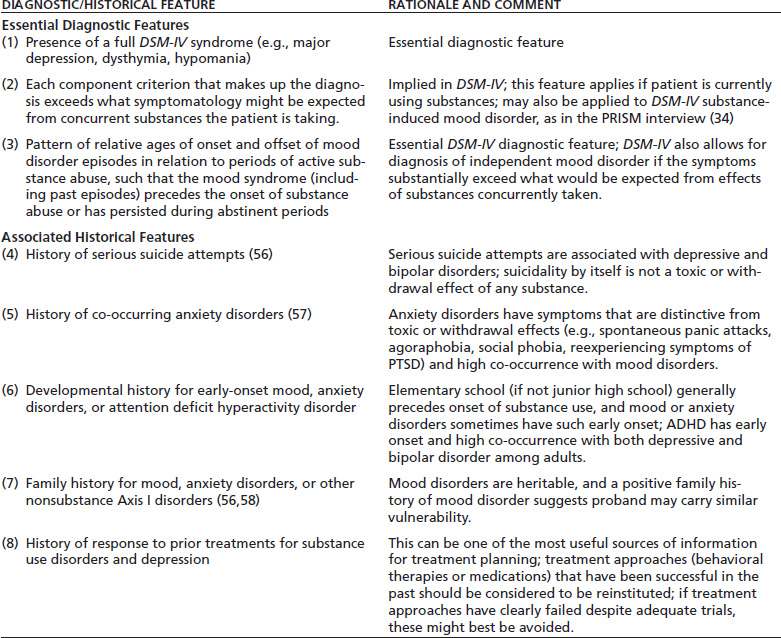For a mental disorder to be considered substance induced the substance involved must be known to be capable of causing the disorder. With substance-induced mood disorders however the.
 Co Occurring Addictive And Mood Disorders Basicmedical Key
Co Occurring Addictive And Mood Disorders Basicmedical Key
Substance-Induced Mental Disorders Substance-induced mental disorders are mental changes produced by substance use or withdrawal that resemble independent mental disorders such as depression psychosis or anxiety.

Substance induced mood disorder. When you take drugs substances or alcohol they might at times make you feel changes in your mood or cause uncomfortable feelings known as a substance-induced mood disorder. Substance-induced mood disorder the broad diagnosis that includes opioid-induced depressive disorder describes the condition that occurs when an individual experiences persistent depressive symptoms following the dosage reduction or withdrawal of a substance like an opioid. Substancemedication-induced mood disorder symptoms can start either immediately after use develop with chronic use or may occur as a result of withdrawal from the substance or medication.
Depressed mood or significantly diminished interest or pleasure in all or almost all activities. These symptoms are usually experienced during intoxication with the substance or during. The SAMHSA report however notes that patients vary in how they respond to substances both with intoxication and withdrawal.
Substance-induced mood disorder a diagnosis in prior editions of the Diagnostic and Statistical Manual of Mental Disorders is no longer a diagnosis according to DSM-5. Individuals may suffer from both independent and substance-induced mental disorders but substance-induced mental disorders are different because most all of the psychiatric symptoms are caused by substance use abuse or withdrawl. Psychoactive substance-induced organic mood disorder.
A substance-induced mood disorder is a specific type of depression caused by alcohol and drugs either prescription or illicit. And elevated expansive or irritable mood. Depressed mood or markedly diminished interest or pleasure in all or almost all activities.
This disorder is described as having at least one of the following. 894 Alcohol drug abuse or dependence left ama. Also people with a history of mood disorders or who have a family member with a mood disorder are at a greater risk.
895 Alcohol drug abuse or dependence with rehabilitation therapy. Many medicines and illicit drugs are the primary cause of mood disorders such as depression sadness lack of interest in daily activities and hopelessness. Diagnosing Substance Induced Depressive Disorder Need evidence from HP or labs indicating substance use intox or withdrawal Substance induced depressive disorders start within days to weeks after substance use or withdrawal Symptoms may last for.
Substance-induced mental disorder symptoms can range from anxiety and depression to full psychotic episodes. Substance-induced mood disorder is defined by the DSM is a more general category of mood disorders that are caused by the intoxication or withdrawal of a drug or medication. Manic depressive disorder substance-induced mood disorder A prominent and persistent disturbance in mood characterized by either or both of the following.
The primary features of Substance-induced psychotic disorder are the development of prominent psychotic symptoms like hallucination or delusions or both that have been determined to be caused by a psycho-active substance. DSM-5 advises that a diagnosis of substance-induced mood disorder appropriately describes symptoms that spontaneously dissipate once an antidepressant has been discontinued whereas a diagnosis of BD can be made when manic or hypomanic symptoms persist at a syndromal level after an antidepressant has been stopped and its physiological effects are no longer present. The diagnosis is now.
ICD-10-CM F1994 is grouped within Diagnostic Related Group s MS-DRG v380. Related to substance-induced mood disorder. Substance-induced mood disorder is most likely to be experienced by individuals who are at risk for major depressive disorder dysthymia and bipolar disorder.
Substance-Induced Mood Disorder.
